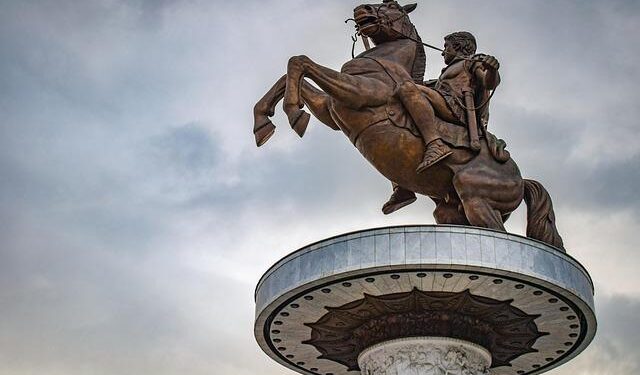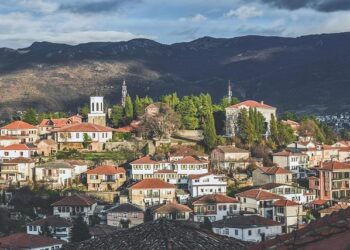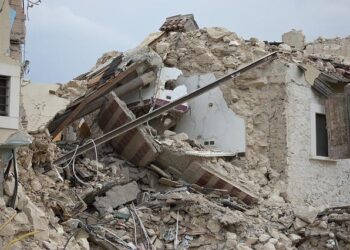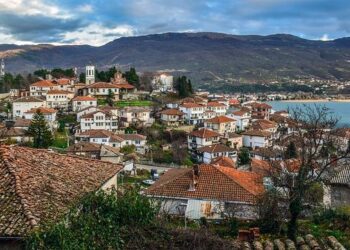North Macedonia continues to capture attention in the evolving political landscape of the Western Balkans. Recent developments highlight the country’s ongoing efforts toward European integration, economic reform, and regional cooperation. This article delves into the key findings surrounding North Macedonia’s current position within the broader European context, examining progress, challenges, and prospects as reported by European Western Balkans.
Key Political Developments Shaping North Macedonia’s EU Accession Path
Recent political shifts in North Macedonia have played a critical role in either accelerating or stalling its journey towards European Union membership. Central to these developments is the government’s persistent effort to implement comprehensive judicial reforms aimed at enhancing transparency and combating corruption. Additionally, evolving bilateral relations with neighboring Bulgaria-especially concerning historical and linguistic disputes-continue to influence the pace of accession negotiations. Diplomatic engagements paired with internal policy adjustments reveal a complex interplay between domestic governance and regional diplomacy.
- Judicial Reform Progress: Adoption of new anti-corruption laws targeting public procurement and high-level officials.
- Bilateral Talks with Bulgaria: Increased frequency of dialogues attempting to resolve cultural and historical disagreements.
- Parliamentary Developments: Cross-party consensus on EU integration remains fragile but essential for legislative advances.
- Public Opinion Dynamics: Growing civic activism demanding accelerated EU accession timelines.
| Political Aspect | Current Status | Impact on EU Accession |
|---|---|---|
| Judicial Reform | Advanced legislative initiatives | Positive, builds EU trust |
| Bilateral Disputes | Ongoing negotiations | Potential bottleneck |
| Government Stability | Moderate with coalition challenges | Influences consistency of reforms |
Economic Challenges and Opportunities in the Western Balkans Context
North Macedonia stands at a critical crossroads, facing a unique blend of economic hurdles and prospects that shape its path towards EU integration and regional stability. Despite persistent challenges such as a high unemployment rate and sluggish industrial productivity, the country is leveraging strategic sectors like information technology and renewable energy to fuel growth. The government’s commitment to reform, combined with increasing foreign investments, particularly from the EU and neighboring states, creates a framework for resilience amid global economic uncertainties. Key barriers include:
- Structural unemployment exceeding 16%, predominantly affecting youth
- Dependence on low-value-added manufacturing
- Limited access to financing for SMEs
- Bureaucratic hurdles slowing business innovation
However, optimism persists, bolstered by the country’s integration efforts and market reforms. Accelerating digital transformation and enhanced infrastructure development progressively open new economic avenues, underscoring the Western Balkans’ role as an emerging hub for cross-border trade and investment. North Macedonia’s proactive positioning in regional initiatives also promises stronger economic ties and diversified growth opportunities.
| Economic Indicator | 2022 Value | 2023 Projection |
|---|---|---|
| GDP Growth Rate | 3.2% | 3.8% |
| Unemployment Rate | 16.5% | 15.7% |
| FDI Inflows (million EUR) | 450 | 520 |
| Renewable Energy Share | 18% | 22% |
Strategic Recommendations for Advancing North Macedonia’s Integration Process
To accelerate the integration of North Macedonia into the European Union, a multifaceted strategy focusing on both political and socio-economic reforms is essential. Emphasis must be placed on strengthening the rule of law and ensuring judicial independence, which remain critical hurdles. Furthermore, fostering transparent governance and combating corruption will restore public trust and align the country with EU standards. This approach requires sustained commitment from domestic institutions alongside active engagement with EU bodies to effectively navigate the accession process.
- Enhance administrative capacities to improve policy implementation and compliance monitoring.
- Promote regional cooperation to resolve bilateral disputes and reinforce stability in the Western Balkans.
- Invest in digital and green transition initiatives to meet EU environmental directives and boost economic resilience.
| Priority Area | Recommended Action | Expected Outcome |
|---|---|---|
| Judicial Reform | Implement transparent appointment processes | Increased judicial independence |
| Anti-Corruption Measures | Strengthen oversight bodies | Reduced institutional corruption |
| Economic Development | Support green investments | Aligned with EU sustainability goals |
To Conclude
As North Macedonia continues its journey towards deeper integration with the European Union, these key findings underscore both the progress made and the challenges that lie ahead. The nation’s commitment to reforms, regional cooperation, and strengthening democratic institutions remains central to its path forward. Observers and stakeholders will be closely watching how North Macedonia leverages these developments to advance its European aspirations in the coming months.
















